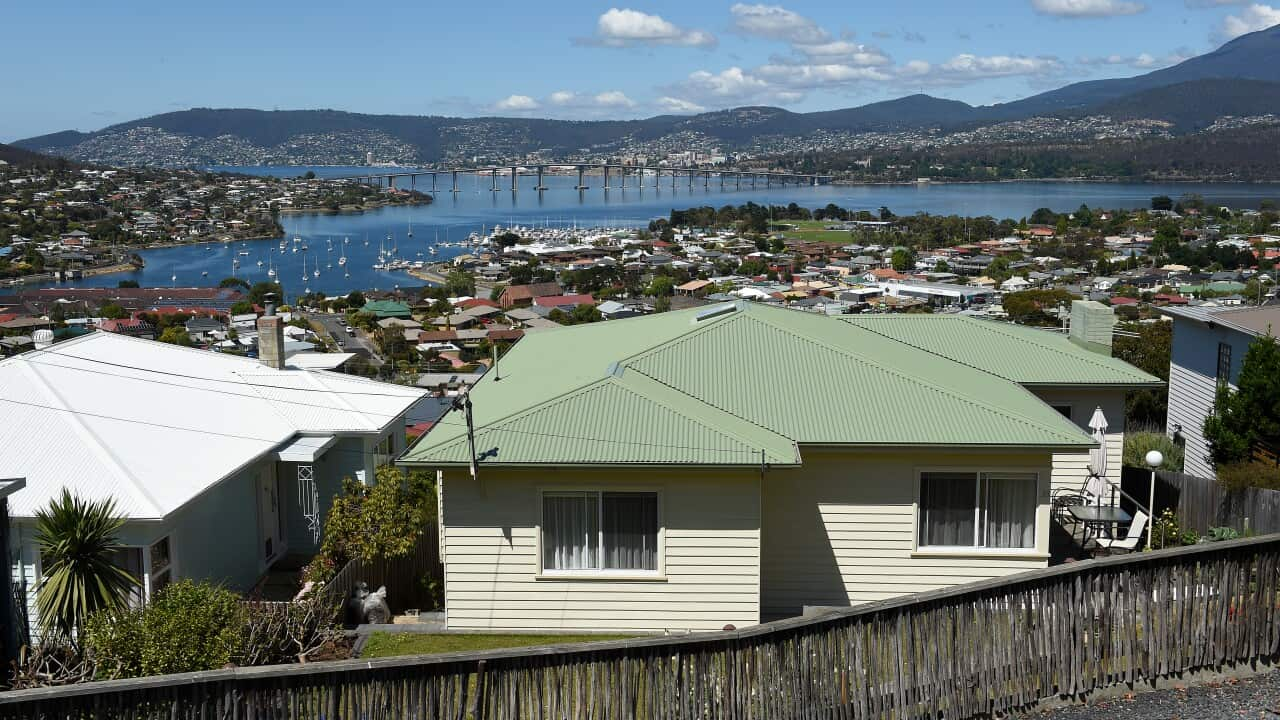Key Points
- Om Dhungel was forced to leave Bhutan in the early '90s and came to Australia via Nepal.
- His autobiography, “Bhutan to Blacktown: Losing Everything and Finding Australia”, chronicles his journey.
- Refugee Week runs 18-24 June in Australia.
Refugee turned entrepreneur and community advocate, Om Dhungel, says he hopes his book “Bhutan to Blacktown: Losing Everything and Finding Australia” will inspire others.
The unassuming book, which Mr Dhungel wrote with help from James Button, a multi-award-winning journalist, chronicles his refugee journey after having his old life snatched away in one moment.
Mr Dhungel was forced to leave Bhutan in the early '90s and came to Australia via Nepal at the turn of the millennium.
The book delves into his struggle to rebuild his life one brick at a time in a faraway land.

Om Dhungel in the housing estate he now calls his home in the City of Blacktown in Western Sydney. Credit: Scanlon Foundation Research Institute
“If we had just lamented about us being made refugees and kept whining about the government's handling, we probably would have perished by now,” he claimed in an interview with SBS Nepali.
He said that while one couldn't forget their ordeal, his way of thinking was that what had happened could not be altered, so he had to move on in life.
“So, the choice you make, [your] life depends on [those choices],” he said.
The one-time Telstra analyst said he believed refugees should be grateful for things like being able to live in a free society and breathe fresh air.
“I say, gratitude is [an] insurance (policy) for happiness,” Mr Dhungel explained.
If we can be a bit grateful, we can be happy.Om Dhungel
The motivational speaker, who likes to describe himself as the “Blacktown boy,” said he considered people from all 188 countries who had come and settled in the city as his own community.
“As I have shared the story, I want others to share their stories too,” he said.
Not just a book

Om Dhungel (C) launched his autobiography "Bhutan to Blacktown - Losing Everything and Finding Australia" that he wrote with award-winning journalist, James Button (R). Credit: SBS Nepali/Sameer Ghimire
“[He was] thinking very hard and in a nuanced way about the challenges of settling (into) new communities in Australia ... in an open-minded and generous way,” he said.
He just didn't want to write an autobiography or a memoir; he also wanted to make an argument about how he thought Australia could do better in its settlement policies (around) refugees.James Button
Mr Dhungel was born in Lamidara, now known as Mendrelgang, in southern Bhutan.
Mr Button said the area's name change was one example of how the Bhutani regime had changed the whole culture of southern Bhutan, where Nepali-speaking people once thrived.

Om Dhungel says the dress code imposed by the Bhutani government made everyday life uncomfortable. Source: Supplied / Supplied
“Om grew up in a village where there was no electricity, no running water into houses, no roads, no cars. He saw his first car when he was 10!” Mr Button explained.
[There were] no doctors, a very small health centre that handed out painkillers (but) otherwise, if children got sick, he says, that there were these ‘witch doctors’ who would shake leaves and perform various ceremonies.James Button
According to Mr Button, if it had not been for the impact of modernity, the changes that were to follow in Mr Dhungel's life would probably not have occurred.
Rise, fall and rise again
With exceptional opportunities in education, Mr Dhungel rose high in the Bhutani Civil Service.
“And then, everything turned around,” Mr Button said of his co-author's life.
As Om says, they were forced to leave (due to ethnic cleansing by the Bhutani regime) but were made to sign a document that said they were leaving voluntarily.James Button
Mr Dhungel went from being a agricultural worker's son to a divisional head of the Bhutani Telecommunications Department before his life was snapped away in one moment, Mr Button said.
In the 1990s, the government in Bhutan introduced the ‘One Nation, One People’ policy forcing Nepali speakers in the southern part of the country to relinquish their language and culture or risk facing retribution.
Over 100,000 people were displaced, ending up in refugee camps in south-eastern Nepal.
Bhutanis have since resettled in Australia and other Western nations in a deal brokered by the United Nations High Commissioner for Refugees (UNHCR).
Listen to our conversation with Om, James and other members of the community at the book launch

'मान्छेलाई के आइलाग्छ आफ्नो कन्ट्रोलमा हुँदैन, तर म कसरी अगाडी बढ्छु भन्ने आफ्नो चोइस हुँदो रहेछ'
SBS Nepali
18/05/202317:07






